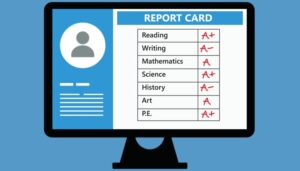K-12 teachers are adopting generative AI (GenAI) technologies in the classroom at a greater rate than their higher education counterparts, according to new national survey data from the global edtech firm Cengage Group.
The number of U.S. school districts providing training for teachers on artificial intelligence technologies has more than doubled in the span of a year, with 48 percent of districts offering at least some AI training by fall 2024 – up from just 23 percent the year before.
Florida Virtual School (FLVS), an online K–12 school primarily operating in the state of Florida, has introduced a year-long “Artificial Intelligence (AI) in Math” supplemental certification for middle and high school students.
The Washington Office of Superintendent of Public Instruction (OSPI) has launched a universal online statewide platform to support the state’s High School and Beyond Plan (HSBP) initiative.
Arkansas Gov. Sarah Huckabee Sanders has signed the Bell to Bell, No Cell Act into law. The legislation bans smartphones and other personal electronic devices like smart watches from all public schools in Arkansas. The legislation will go into effect at the beginning of the 2025-2026 school year.
The Oregon Department of Education (ODE) has launched the Online Report Card, which will make K-12 public education data more accessible for students, families, and community members.
New York Gov. Kathy Hochul has begun her official push to restrict smartphones in schools, to “ensure distraction-free learning” statewide.
CoSN, a professional association for K-12 EdTech leaders, has received a grant to advance responsible implementation of artificial intelligence technologies in K-12 school districts.
Kentucky First Lady Britainy Beshear announced that TeachingBooks is now available and free to use at all Kentucky schools and libraries, as well as online from a laptop or cellphone. This website provides learning resources related to roughly 100,000 books for children and young adults.
Eighteen school districts across the state of North Carolina will receive a total of $800,000 in grant funding to help students develop computer science skills through coding and app development.










